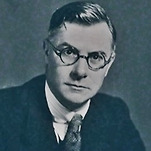<p class="0" style="line-height:200%;mso-pagination:none;text-autospace:none;mso-padding-alt:0.0pt 0.0pt 0.0pt 0.0pt;"><span style="font-family: &quot;한컴 솔잎 B&quot;; font-size: 12pt; font-weight: bold; letter-spacing: 3pt;">In the seventeenth and eighteenth centuries</span><br></p><p class="0" style="line-height:200%;mso-pagination:none;text-autospace:none;mso-padding-alt:4.0pt 1.0pt 4.0pt 1.0pt;"><span style="font-family:한컴 솔잎 B;mso-ascii-font-family:한컴 솔잎 B;mso-font-width:75%;letter-spacing:3.0pt;mso-text-raise:0.0pt;font-weight:bold;font-size:12.0pt;">17~18</span><span style="mso-fareast-font-family:한컴 솔잎 B;mso-font-width:75%;letter-spacing:3.0pt;font-weight:bold;font-size:12.0pt;">세기에</span></p><p class="0" style="line-height:200%;mso-pagination:none;text-autospace:none;mso-padding-alt:4.0pt 1.0pt 4.0pt 1.0pt;"> <!--[if !supportEmptyParas]-->&nbsp;<!--[endif]--> </p><p class="0" style="line-height:200%;mso-pagination:none;text-autospace:none;mso-padding-alt:4.0pt 1.0pt 4.0pt 1.0pt;"><span style="font-family:한컴 솔잎 B;mso-ascii-font-family:한컴 솔잎 B;mso-font-width:75%;letter-spacing:3.0pt;mso-text-raise:0.0pt;font-weight:bold;font-size:12.0pt;">man had already become fully conscious of the world around him and of its laws. </span></p><p class="0" style="line-height:200%;mso-pagination:none;text-autospace:none;mso-padding-alt:4.0pt 1.0pt 4.0pt 1.0pt;"><span style="mso-fareast-font-family:한컴 솔잎 B;mso-font-width:75%;letter-spacing:3.0pt;font-weight:bold;font-size:12.0pt;">인간은 이미 충분히 의식해 왔다</span><span style="font-family:한컴 솔잎 B;mso-ascii-font-family:한컴 솔잎 B;mso-font-width:75%;letter-spacing:3.0pt;mso-text-raise:0.0pt;font-weight:bold;font-size:12.0pt;">. </span><span style="mso-fareast-font-family:한컴 솔잎 B;mso-font-width:75%;letter-spacing:3.0pt;font-weight:bold;font-size:12.0pt;">그를 둘러싼 세계와 법칙들에 대해서</span><span style="font-family:한컴 솔잎 B;mso-ascii-font-family:한컴 솔잎 B;mso-font-width:75%;letter-spacing:3.0pt;mso-text-raise:0.0pt;font-weight:bold;font-size:12.0pt;">.</span></p><p class="0" style="line-height:200%;mso-pagination:none;text-autospace:none;mso-padding-alt:4.0pt 1.0pt 4.0pt 1.0pt;"> <!--[if !supportEmptyParas]-->&nbsp;<!--[endif]--> </p><p class="0" style="line-height:200%;mso-pagination:none;text-autospace:none;mso-padding-alt:4.0pt 1.0pt 4.0pt 1.0pt;"><span style="font-family:한컴 솔잎 B;mso-ascii-font-family:한컴 솔잎 B;mso-font-width:75%;letter-spacing:3.0pt;mso-text-raise:0.0pt;font-weight:bold;font-size:12.0pt;">They were no longer the mysterious decrees of an inscrutable providence, </span></p><p class="0" style="line-height:200%;mso-pagination:none;text-autospace:none;mso-padding-alt:4.0pt 1.0pt 4.0pt 1.0pt;"><span style="mso-fareast-font-family:한컴 솔잎 B;mso-font-width:75%;letter-spacing:3.0pt;font-weight:bold;font-size:12.0pt;">그들은 더 이상 난해 불가한 신의뜻</span><span style="font-family:한컴 솔잎 B;mso-ascii-font-family:한컴 솔잎 B;mso-font-width:75%;letter-spacing:3.0pt;mso-text-raise:0.0pt;font-weight:bold;font-size:12.0pt;">(providence, </span><span style="mso-fareast-font-family:한컴 솔잎 B;mso-font-width:75%;letter-spacing:3.0pt;font-weight:bold;font-size:12.0pt;">섭리</span><span style="font-family:한컴 솔잎 B;mso-ascii-font-family:한컴 솔잎 B;mso-font-width:75%;letter-spacing:3.0pt;mso-text-raise:0.0pt;font-weight:bold;font-size:12.0pt;">)</span><span style="mso-fareast-font-family:한컴 솔잎 B;mso-font-width:75%;letter-spacing:3.0pt;font-weight:bold;font-size:12.0pt;">로의 신비한 명령</span><span style="font-family:한컴 솔잎 B;mso-ascii-font-family:한컴 솔잎 B;mso-font-width:75%;letter-spacing:3.0pt;mso-text-raise:0.0pt;font-weight:bold;font-size:12.0pt;">(decrees)</span><span style="mso-fareast-font-family:한컴 솔잎 B;mso-font-width:75%;letter-spacing:3.0pt;font-weight:bold;font-size:12.0pt;">들이 아니라</span><span style="font-family:한컴 솔잎 B;mso-ascii-font-family:한컴 솔잎 B;mso-font-width:75%;letter-spacing:3.0pt;mso-text-raise:0.0pt;font-weight:bold;font-size:12.0pt;">.</span></p><p class="0" style="line-height:200%;mso-pagination:none;text-autospace:none;mso-padding-alt:4.0pt 1.0pt 4.0pt 1.0pt;"> <!--[if !supportEmptyParas]-->&nbsp;<!--[endif]--> </p><p class="0" style="line-height:200%;mso-pagination:none;text-autospace:none;mso-padding-alt:4.0pt 1.0pt 4.0pt 1.0pt;"><span style="font-family:한컴 솔잎 B;mso-ascii-font-family:한컴 솔잎 B;mso-font-width:75%;letter-spacing:3.0pt;mso-text-raise:0.0pt;font-weight:bold;font-size:12.0pt;">but laws accessible to reason. </span></p><p class="0" style="line-height:200%;mso-pagination:none;text-autospace:none;mso-padding-alt:4.0pt 1.0pt 4.0pt 1.0pt;"><span style="mso-fareast-font-family:한컴 솔잎 B;mso-font-width:75%;letter-spacing:3.0pt;font-weight:bold;font-size:12.0pt;">이성으로 접근 가능한 법칙들이었다</span><span style="font-family:한컴 솔잎 B;mso-ascii-font-family:한컴 솔잎 B;mso-font-width:75%;letter-spacing:3.0pt;mso-text-raise:0.0pt;font-weight:bold;font-size:12.0pt;">.</span></p><p class="0" style="line-height:200%;mso-pagination:none;text-autospace:none;mso-padding-alt:4.0pt 1.0pt 4.0pt 1.0pt;"> <!--[if !supportEmptyParas]-->&nbsp;<!--[endif]--> </p><p class="0" style="line-height:200%;mso-pagination:none;text-autospace:none;mso-padding-alt:4.0pt 1.0pt 4.0pt 1.0pt;"><span style="font-family:한컴 솔잎 B;mso-ascii-font-family:한컴 솔잎 B;mso-font-width:75%;letter-spacing:3.0pt;mso-text-raise:0.0pt;font-weight:bold;font-size:12.0pt;">But they were laws to which man was subject, and not laws of his own making: </span></p><p class="0" style="line-height:200%;mso-pagination:none;text-autospace:none;mso-padding-alt:4.0pt 1.0pt 4.0pt 1.0pt;"><u><span style="mso-fareast-font-family:한컴 솔잎 B;mso-font-width:75%;letter-spacing:3.0pt;font-weight:bold;font-size:12.0pt;">그러나 아직까지는 그 법칙들에 인간들 종속되었었다</span></u><u><span style="font-family:한컴 솔잎 B;mso-ascii-font-family:한컴 솔잎 B;mso-font-width:75%;letter-spacing:3.0pt;mso-text-raise:0.0pt;font-weight:bold;font-size:12.0pt;">. </span></u><span style="mso-fareast-font-family:한컴 솔잎 B;mso-font-width:75%;letter-spacing:3.0pt;font-weight:bold;font-size:12.0pt;">그들 자신이 만들어 가는 법칙들이 아니었다</span><span style="font-family:한컴 솔잎 B;mso-ascii-font-family:한컴 솔잎 B;mso-font-width:75%;letter-spacing:3.0pt;mso-text-raise:0.0pt;font-weight:bold;font-size:12.0pt;">.</span></p><p class="0" style="line-height:200%;mso-pagination:none;text-autospace:none;mso-padding-alt:4.0pt 1.0pt 4.0pt 1.0pt;"> <!--[if !supportEmptyParas]-->&nbsp;<!--[endif]--> </p><p class="0" style="line-height:200%;mso-pagination:none;text-autospace:none;mso-padding-alt:4.0pt 1.0pt 4.0pt 1.0pt;"><span style="font-family:한컴 솔잎 B;mso-ascii-font-family:한컴 솔잎 B;mso-font-width:75%;letter-spacing:3.0pt;mso-text-raise:0.0pt;font-weight:bold;font-size:12.0pt;">In the next stage man was to become fully conscious of his power over his environment and over himself, </span></p><p class="0" style="line-height:200%;mso-pagination:none;text-autospace:none;mso-padding-alt:4.0pt 1.0pt 4.0pt 1.0pt;"><span style="mso-fareast-font-family:한컴 솔잎 B;mso-font-width:75%;letter-spacing:3.0pt;font-weight:bold;font-size:12.0pt;">다음 단계에서 인간은 그의 힘에 대해서 충분히 의식하기 시작했다</span><span style="font-family:한컴 솔잎 B;mso-ascii-font-family:한컴 솔잎 B;mso-font-width:75%;letter-spacing:3.0pt;mso-text-raise:0.0pt;font-weight:bold;font-size:12.0pt;">. </span><span style="mso-fareast-font-family:한컴 솔잎 B;mso-font-width:75%;letter-spacing:3.0pt;font-weight:bold;font-size:12.0pt;">환경과 그 자신에 대한 힘을</span><span style="font-family:한컴 솔잎 B;mso-ascii-font-family:한컴 솔잎 B;mso-font-width:75%;letter-spacing:3.0pt;mso-text-raise:0.0pt;font-weight:bold;font-size:12.0pt;">.</span></p><p class="0" style="line-height:200%;mso-pagination:none;text-autospace:none;mso-padding-alt:4.0pt 1.0pt 4.0pt 1.0pt;"> <!--[if !supportEmptyParas]-->&nbsp;<!--[endif]--> </p><p class="0" style="line-height:200%;mso-pagination:none;text-autospace:none;mso-padding-alt:4.0pt 1.0pt 4.0pt 1.0pt;"><span style="font-family:한컴 솔잎 B;mso-ascii-font-family:한컴 솔잎 B;mso-font-width:75%;letter-spacing:3.0pt;mso-text-raise:0.0pt;font-weight:bold;font-size:12.0pt;">and of his right to make the laws under which he would live. </span></p><p class="0" style="line-height:200%;mso-pagination:none;text-autospace:none;mso-padding-alt:4.0pt 1.0pt 4.0pt 1.0pt;"><span style="mso-fareast-font-family:한컴 솔잎 B;mso-font-width:75%;letter-spacing:3.0pt;font-weight:bold;font-size:12.0pt;">그리고 의식했다</span><span style="font-family:한컴 솔잎 B;mso-ascii-font-family:한컴 솔잎 B;mso-font-width:75%;letter-spacing:3.0pt;mso-text-raise:0.0pt;font-weight:bold;font-size:12.0pt;">. </span><span style="mso-fareast-font-family:한컴 솔잎 B;mso-font-width:75%;letter-spacing:3.0pt;font-weight:bold;font-size:12.0pt;">그의 권리를 법칙들을 만들어 가는 권리를</span><span style="font-family:한컴 솔잎 B;mso-ascii-font-family:한컴 솔잎 B;mso-font-width:75%;letter-spacing:3.0pt;mso-text-raise:0.0pt;font-weight:bold;font-size:12.0pt;">. </span><span style="mso-fareast-font-family:한컴 솔잎 B;mso-font-width:75%;letter-spacing:3.0pt;font-weight:bold;font-size:12.0pt;">그들이 살아가야 할 법칙들을 만들어 갈 권리</span><span style="font-family:한컴 솔잎 B;mso-ascii-font-family:한컴 솔잎 B;mso-font-width:75%;letter-spacing:3.0pt;mso-text-raise:0.0pt;font-weight:bold;font-size:12.0pt;">.</span></p><p class="0" style="line-height:200%;mso-pagination:none;text-autospace:none;mso-padding-alt:4.0pt 1.0pt 4.0pt 1.0pt;"> <!--[if !supportEmptyParas]-->&nbsp;<!--[endif]--> </p><p class="0" style="line-height:200%;mso-pagination:none;text-autospace:none;mso-padding-alt:4.0pt 1.0pt 4.0pt 1.0pt;"><span style="font-family:한컴 솔잎 B;mso-ascii-font-family:한컴 솔잎 B;mso-font-width:75%;letter-spacing:3.0pt;mso-text-raise:0.0pt;font-weight:bold;font-size:12.0pt;">The transition from the eighteenth century to the modern world was long and gradual. </span></p><p class="0" style="line-height:200%;mso-pagination:none;text-autospace:none;mso-padding-alt:4.0pt 1.0pt 4.0pt 1.0pt;"><span style="font-family:한컴 솔잎 B;mso-ascii-font-family:한컴 솔잎 B;mso-font-width:75%;letter-spacing:3.0pt;mso-text-raise:0.0pt;font-weight:bold;font-size:12.0pt;">18</span><span style="mso-fareast-font-family:한컴 솔잎 B;mso-font-width:75%;letter-spacing:3.0pt;font-weight:bold;font-size:12.0pt;">세기부터 근대로의 전환은 길고 천천히 진행되었다</span><span style="font-family:한컴 솔잎 B;mso-ascii-font-family:한컴 솔잎 B;mso-font-width:75%;letter-spacing:3.0pt;mso-text-raise:0.0pt;font-weight:bold;font-size:12.0pt;">.</span></p><p class="0" style="line-height:200%;mso-pagination:none;text-autospace:none;mso-padding-alt:4.0pt 1.0pt 4.0pt 1.0pt;"> <!--[if !supportEmptyParas]-->&nbsp;<!--[endif]--> </p><p class="0" style="line-height:200%;mso-pagination:none;text-autospace:none;mso-padding-alt:4.0pt 1.0pt 4.0pt 1.0pt;"><span style="font-family:한컴 솔잎 B;mso-ascii-font-family:한컴 솔잎 B;mso-font-width:75%;letter-spacing:3.0pt;mso-text-raise:0.0pt;font-weight:bold;font-size:12.0pt;">Its representative philosophers were Hegel and Marx, </span></p><p class="0" style="line-height:200%;mso-pagination:none;text-autospace:none;mso-padding-alt:4.0pt 1.0pt 4.0pt 1.0pt;"><span style="mso-fareast-font-family:한컴 솔잎 B;mso-font-width:75%;letter-spacing:3.0pt;font-weight:bold;font-size:12.0pt;">대표적인 두 철학자들은 헤겔과 막스였다</span><span style="font-family:한컴 솔잎 B;mso-ascii-font-family:한컴 솔잎 B;mso-font-width:75%;letter-spacing:3.0pt;mso-text-raise:0.0pt;font-weight:bold;font-size:12.0pt;">.</span></p><p class="0" style="line-height:200%;mso-pagination:none;text-autospace:none;mso-padding-alt:4.0pt 1.0pt 4.0pt 1.0pt;"> <!--[if !supportEmptyParas]-->&nbsp;<!--[endif]--> </p><p class="0" style="line-height:200%;mso-pagination:none;text-autospace:none;mso-padding-alt:4.0pt 1.0pt 4.0pt 1.0pt;"><span style="font-family:한컴 솔잎 B;mso-ascii-font-family:한컴 솔잎 B;mso-font-width:75%;letter-spacing:3.0pt;mso-text-raise:0.0pt;font-weight:bold;font-size:12.0pt;">both of whom occupy an ambivalent position. </span></p><p class="0" style="line-height:200%;mso-pagination:none;text-autospace:none;mso-padding-alt:4.0pt 1.0pt 4.0pt 1.0pt;"><span style="mso-fareast-font-family:한컴 솔잎 B;mso-font-width:75%;letter-spacing:3.0pt;font-weight:bold;font-size:12.0pt;">그들 둘 다 약간 이중적인 애매한 위치를 차지한다</span><span style="font-family:한컴 솔잎 B;mso-ascii-font-family:한컴 솔잎 B;mso-font-width:75%;letter-spacing:3.0pt;mso-text-raise:0.0pt;font-weight:bold;font-size:12.0pt;">.</span></p><p class="0" style="line-height:200%;mso-pagination:none;text-autospace:none;mso-padding-alt:4.0pt 1.0pt 4.0pt 1.0pt;"> <!--[if !supportEmptyParas]-->&nbsp;<!--[endif]--> </p><p class="0" style="line-height:200%;mso-pagination:none;text-autospace:none;mso-padding-alt:4.0pt 1.0pt 4.0pt 1.0pt;"><span style="font-family:한컴 솔잎 B;mso-ascii-font-family:한컴 솔잎 B;mso-font-width:75%;letter-spacing:3.0pt;mso-text-raise:0.0pt;font-weight:bold;font-size:12.0pt;">Hegel is rooted in the idea of laws of providence converted into laws of reason. </span></p><p class="0" style="line-height:200%;mso-pagination:none;text-autospace:none;mso-padding-alt:4.0pt 1.0pt 4.0pt 1.0pt;"><span style="mso-fareast-font-family:한컴 솔잎 B;mso-font-width:75%;letter-spacing:3.0pt;font-weight:bold;font-size:12.0pt;">헤겔은 뿌리를 두고 있다</span><span style="font-family:한컴 솔잎 B;mso-ascii-font-family:한컴 솔잎 B;mso-font-width:75%;letter-spacing:3.0pt;mso-text-raise:0.0pt;font-weight:bold;font-size:12.0pt;">. </span><span style="mso-fareast-font-family:한컴 솔잎 B;mso-font-width:75%;letter-spacing:3.0pt;font-weight:bold;font-size:12.0pt;">신의 법칙 개념으로부터 이성의 법칙으로 전환이라 것에 뿌리를 두고 있다</span></p>
<!-- -->



